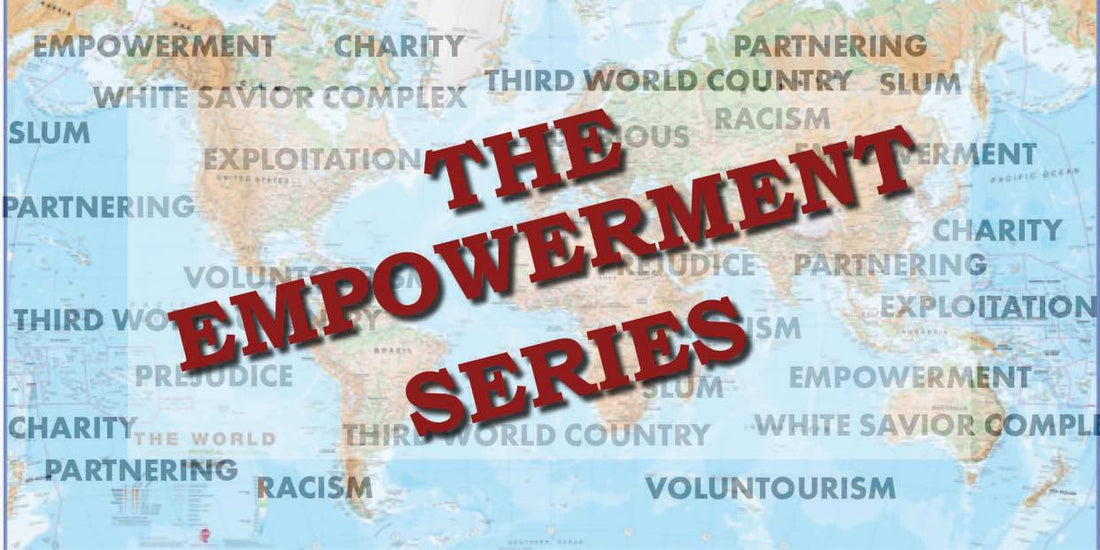
The Poverty Industry - How Poverty is a Big Business
Share
In the first post of this series, you learned about the negative side of “voluntourism” and the thing called the white savior complex. In Part 2 we are going to learn about poverty as big business and how developing countries are exploited through non profits, celebrities and social entrepreneurism.
The term exploit commonly means to selfishly take advantage of someone in order to profit from them or otherwise benefit oneself.
In all organizations, programs, or even charities there are good and bad people. Some organizations are formed only for the purpose of taking and making money at the expense of the people they claim to be helping.
Poverty is a big money making industry and many in the “poverty business” don’t want to eradicate poverty; they want to control poverty so they can keep getting funding. For many the funding provides a comfortable life for them at the expense of those they claim to be supporting. If poverty becomes obsolete, then the money stops.
This idea is outlined in the Poverty Inc documentary that provides facts and details about the poverty industry. The link is below and the following highlights some of the information shared in the documentary.
The way that we help the poor in general needs to change. Giving generally comes from a good heart, but giving has gone too far and has turned into an industry that is paralyzing the very communities it intends to help. Constant giving creates a dependency mentality instead of an independent mentality. No one wants to get a hand out his or her entire life. Giving free stuff from outside the developing country destroys the local market. People don’t want to be receiving things for free for life.
People want to learn how to fish, not be given fish every day.

Africa isn’t barren. African’s are not hopeless. This image of hopelessness and poverty is an image many think of when they think of Africa because of celebrities and other images. They assume everyone is poor and hungry.
“Do they know it’s Christmas” was originally written in 1984 and gave this image that people in Africa are so hopeless and can’t do anything for themselves or by themselves. The celebrities are wiring the brain of the US that they can’t make it without help and wiring the brain of the African’s that they aren’t capable of doing anything themselves. They don’t want another celebrity to create or sing a song.
The purpose of aid started with The Marshall plan, which was intended to rebuild war torn Europe after WWII. It was a plan to jumpstart economies. It turned into neo colonialism and caused countries to compete for resources. Aid in the long term is a track to nowhere for the developing country. More aid causes less independence for the people.
The best way to help is to help people start on their own. Buy local not send aid from the US or other countries. It depletes the local economy and floods the local market with an excessive amount of products, which creates laziness and dependency in the local economy.
Charity that hurts – 3 examples
- In Kenya, they used to grow cotton and make t-shirts and other garments. Now there is very little Kenya cotton because of the influx of second hand clothing from the US, Europe and Canada. It’s had a negative effect on the textile industry in Kenya. cnd caused cotton farms shut down.
- There was a man in a developing country that had an egg farm. A church in the US decided to send dozens and dozens of eggs to the area where the egg farmer lived. It flooded the market, the local guy went out of business and then the church stopped sending eggs and then there were no eggs.
- Tom’s shoes – you are probably most familiar with this example. You buy a pair of shoes and they give a pair of shoes to someone who doesn’t have any. Sounds great but the problem is free shoes put local shoe maker out of business. Why would they go buy something when you can get it for free? Dumping free stuff on the market negatively affects the ability for the people in the developing country to be self-sustaining and fully supporting by their own contributions.

People rise out of poverty only from climbing the ladder of success through hard work and free enterprise. Help is ok but should be a hand up not a hand out, which is our motto at Baskets and Beads. We have been extensively studying and researching these concepts and the exploitive way that keeps the developing country or group under the foot of the donor country or group. We are determined to ensure we don’t become part of that problem and instead become part of the solution.
The series continues with more information about the poverty industry and exploitation of people in poverty.
